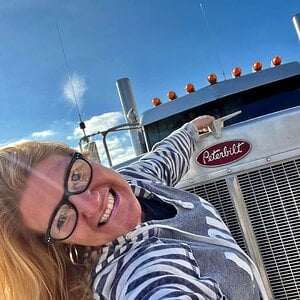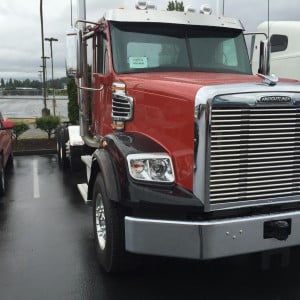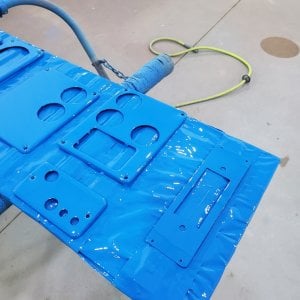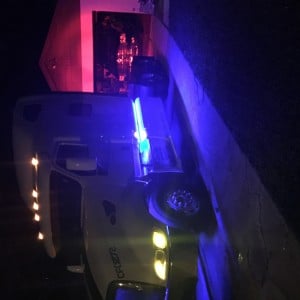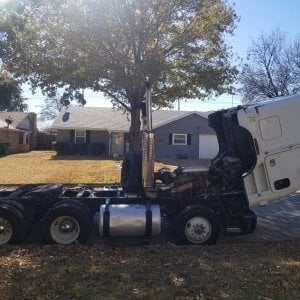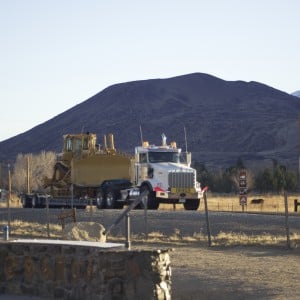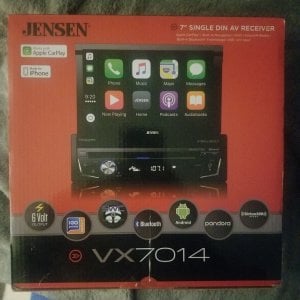You are using an out of date browser. It may not display this or other websites correctly.
You should upgrade or use an alternative browser.
You should upgrade or use an alternative browser.
Lease purchase driver
- Thread starter Joseph floyd
- Start date
More options
Who Replied?mndriver
curmudgeon extraordinare
It's important to the OP as well.
A lease payment is high. $550/ week is $2700/ month.
Fixed overhead costs are going to force him to be gone significantly more just to make payments.
I don't know if you have to make trailer rental payments. Either with Swift, prime or Schneider. None of you have mentioned that in the past. Others have and it comes in the form of like 80% vs 74% of gross. On $200,000 revenue, that's $12,000 annually or $1,000 monthly.
So suddenly his $2700 payment becomes $3700 per month. Haven't even touched insurance or his salary yet.
Nor have I gotten into saying this is a lease vs authority issue.
It's a pure business accounting issue.
Exceptionally high fixed overhead.
Because when the rates of freight isn't there, something has to give.
Bouncing 900 miles may sound nuts for a load. But it makes sense when you are doing the same start and end point and suddenly a 1400 mile trip with 600 miles loaded instead of 1400 miles loaded for the same rate sounds a lot better.
A lease payment is high. $550/ week is $2700/ month.
Fixed overhead costs are going to force him to be gone significantly more just to make payments.
I don't know if you have to make trailer rental payments. Either with Swift, prime or Schneider. None of you have mentioned that in the past. Others have and it comes in the form of like 80% vs 74% of gross. On $200,000 revenue, that's $12,000 annually or $1,000 monthly.
So suddenly his $2700 payment becomes $3700 per month. Haven't even touched insurance or his salary yet.
Nor have I gotten into saying this is a lease vs authority issue.
It's a pure business accounting issue.
Exceptionally high fixed overhead.
Because when the rates of freight isn't there, something has to give.
Bouncing 900 miles may sound nuts for a load. But it makes sense when you are doing the same start and end point and suddenly a 1400 mile trip with 600 miles loaded instead of 1400 miles loaded for the same rate sounds a lot better.
ironpony
Professional Pot-Stirrer
And how much do you have to run? And how many days of per diem did you have last year?
Considering I had two months off for a heart attack and I took off another 7 weeks personal time last year in addition to a brand new trailer, I'd say I did something right.
Had I been a lease operator at a carrier, I'd have had nothing left most likely.
That's right. but let's keep this in the perspective of the OP, its not about you and me.
My first bit of advice is save your money, and buy a truck outright.
If you are still hot to drive a nice new shiny leased Peterpacker, than you'd better have your ducks in a row (shoot the odd lookin' @Duck ) before you start. That means getting some business education, saving as much money as you can, learn how to run your truck efficiently and get a copy of the lease and read it. Ask a lot of questions, figure out what your expected gross revenue will be, find out what your costs will be, and do enough elementary school arithmetic to decide if there is enough money on the average to make the fleece work.
Don't forget your salary... what you will pay yourself out of what is left over. Your settlement check ceases to be a paycheck, and is operating cash flow into your business. Your paycheck is what you decide to osy yourself if there is enough cash to do that. Anything beyond that needs to go into the bank to cover unanticipated expenses.
ironpony
Professional Pot-Stirrer
This is why you don't need to be part of this discussion. You have no experience leasing, and you want to make it you vs me.It's important to the OP as well.
A lease payment is high. $550/ week is $2700/ month.
Fixed overhead costs are going to force him to be gone significantly more just to make payments.
I don't know if you have to make trailer rental payments. Either with Swift, prime or Schneider. None of you have mentioned that in the past. Others have and it comes in the form of like 80% vs 74% of gross. On $200,000 revenue, that's $12,000 annually or $1,000 monthly.
So suddenly his $2700 payment becomes $3700 per month. Haven't even touched insurance or his salary yet.
Nor have I gotten into saying this is a lease vs authority issue.
It's a pure business accounting issue.
Exceptionally high fixed overhead.
Because when the rates of freight isn't there, something has to give.
mndriver
curmudgeon extraordinare
Doesn't matter if I've never leased.This is why you don't need to be part of this discussion. You have no experience leasing, and you want to make it you vs me.
Business accounting is business accounting. Plain and simple.
Leasing from a motor carrier is an expensive business expense.
What did you have to give up to make your lease work?
Mike
Well-Known Member
Being on percentage with Schneider, it's 65%. No additional trailer fees.
Lease payments for those leasing new trucks are looking at 700+/week over here. Add in the weekly maintenance account deduction and you are at $900+/- depending on the truck.
Physical damage insurance through Schneider on a new truck is going to run around $110/week, give or take 5 bucks or so. And no, you don't have an option to get cheaper insurance elsewhere.
I would have to look up the cost of plates and permits, but it's a fair cost, no profit markup on this.
Decent fuel discount, but you can actually do better on your own through NASTC, and get better quality fuel. How much per mile you spend on fuel is up to you and your driving habits. I'm hovering around 20 cents/mile, trying to get it down below that number.
If you have no unexpected issues with the truck, and take care of it, the maintenance account will cover your maintenance costs. Unexpected issues is the key here, because emissions trucks are a crapshoot, and the odds are stacked against you.
Lease payments for those leasing new trucks are looking at 700+/week over here. Add in the weekly maintenance account deduction and you are at $900+/- depending on the truck.
Physical damage insurance through Schneider on a new truck is going to run around $110/week, give or take 5 bucks or so. And no, you don't have an option to get cheaper insurance elsewhere.
I would have to look up the cost of plates and permits, but it's a fair cost, no profit markup on this.
Decent fuel discount, but you can actually do better on your own through NASTC, and get better quality fuel. How much per mile you spend on fuel is up to you and your driving habits. I'm hovering around 20 cents/mile, trying to get it down below that number.
If you have no unexpected issues with the truck, and take care of it, the maintenance account will cover your maintenance costs. Unexpected issues is the key here, because emissions trucks are a crapshoot, and the odds are stacked against you.
Duck
Sarcastic remark goes here
When you tell someone to "get a clue" after misreading his post, you tend to get hostility in response. Then you tell him to get out of the conversation because he's never leased from a carrier?This is why you don't need to be part of this discussion. You have no experience leasing, and you want to make it you vs me.
mndriver
curmudgeon extraordinare
I think he's more pissed because someone is pointing out the excessive challenges to a lease that has cost him more than he cares to admit.When you tell someone to "get a clue" after misreading his post, you tend to get hostility in response. Then you tell him to get out of the conversation because he's never leased from a carrier?
In ways he still won't admit.
To make a lease like this work you pretty much have to give up your life outside the truck.
You can try and get around it by being picky on your rates, but that only lasts so long.
You must haul freight to keep the lights on. And if $1/mile freight helps doing that, then do it.
But don't rely on it.
It's cheaper to just sit at home.
Duck
Sarcastic remark goes here
Or he's just crabby after driving all day. Happens to me too.I think he's more pissed because someone is pointing out the excessive challenges to a lease that has cost him more than he cares to admit.
In ways he still won't admit.
ironpony
Professional Pot-Stirrer
Just not interested in going off topic with the peanut gallery. And I didn't misread anything.
There are two agreements you will sign... a contract to lease the truck, and an operating agreement with a carrier. Usually you will find clauses in each contract specifying costs that you or the carrier are responsible for.
The lease agreement is with the leasing company which can be with a totally separate outfit like Lone Mountain Leasing, but many times is a captive company associated with but legally separate from the carrier. Make sure you understand the cost structure of the lease. For example from what @Mike posted the truck payment is just that, and insurance is separate. With Prime and Success Leasing, you will be quoted a truck payment that includes insurance.
There will be other costs as well... sometimes these are paid by the carrier or leasing company... sometimes you. It does make a difference. For example, JCT makes a big deal out of claiming they pay for reefer fuel... at Prime, the carrier pays to fill the tank once, and then its on your dime. Guess what? Its not a major issue unless they're using old, ratty reefer trailers. How you pay for fuel is a big deal. Are you constrained to one truck stop chain, or do they have a big network? Do you pay IFTA tax or does the carrier? What kind of discount comes with your fuel card? These are things you need to know about, so understanding the contract is really important.
The other contract is leasing your truck on with the carrier... and this explains your operating relationship with them. If you need to lease a trailer, that would be explained here. The way you get your freight, restrictions on co-drivers, the way you're paid, revenue splits are all contained in here.
Something you really do have to understand is how these agreements can be terminated by either you or the carrier. Generally, these agreements are written in a way that the carrier can pull the plug at any time. If you terminate the lease there can be financial repercussions. For example, at CR England, you are responsible for the truck payments until they get around to leasing it to someone else. Generally you will be responsible for damage, and an escrow will be established to provide funding for repairs if you are in the hole when you depart. Its important that you understand the consequences of terminating the lease on your part before you sign the thing.
Maintenance and tire financing is another area you need to explore up front. How is it funded? Will there be a warranty, and when does it run out? Who calls the shots on what will be repaired, and to what degree will it be repaired? Do you have a choice between carrier shops and the manufacturers shops? How are tires financed, and do you get to choose what brand and model is used? What expenses are your responsibility, and what are the penalties if you don't keep up the maintenance?
Insurance... if you're leased to a carrier under their authority, they should provide the insurance. You'll pay for it though. They should provide general auto liability, bobtail and cargo policies... if the tractor is still being financed by the owner there will be collision as well. What is your responsibility in this? What are the deductibles?
These are all questions that should be answered before you sign the contracts... and preferably before you're sitting in the leasing office with what amounts to a salesman pressuring you. Beware outfits that won't provide you with an exemplar copy of the lease before you show up for orientation... they're probably hiding something.
Before you sign, make sure you thoroughly inspect the tractor. See if you can get the ECM downloaded... that will tell you a lot about the truck. If they haven't done a PM on the truck, get an oil sample analyzed. You're looking for excessive soot, fuel dilution, and the presence of potassium and sodium. Find out when the overhead was run last if the truck isn't new... if its been awhile (and ya have plenty of soot in the oil) its time for that, and checking if the charge air cooler is leaking. On a used truck look at the grease zerks... that'll tell you if they've been taking care of it. Any kind of odd tire wear or feathering should be checked in case it needs a three axle alignment. Make sure the brakes are in good shape. Typically these are items you will be responsible for as time goes on, so getting the carrier to take care of these things before you sign for the truck is to your benefit. Make sure they get any necessary repairs done before your first dispatch.
If they offer an APU, jump on it! First its a lot cheaper running an APU than idling a truck. APU maintenance will probably be a wash over time as well. There's a second reason for this as well. On trucks with the EPA 2007 emissions package and later you have a Diesel Particulate Filter that traps soot particles in the exhaust. Low temperature operation and idling tend to produce a lot of soot, and will play havoc with the DPF and EGR systems. That APU may keep you out of the shop and on the road... with some trucks, a lot!
So... we haven't even hooked the truck to the trailer yet, and for good reason. You have to read and understand the contracts to be successful.
There are two agreements you will sign... a contract to lease the truck, and an operating agreement with a carrier. Usually you will find clauses in each contract specifying costs that you or the carrier are responsible for.
The lease agreement is with the leasing company which can be with a totally separate outfit like Lone Mountain Leasing, but many times is a captive company associated with but legally separate from the carrier. Make sure you understand the cost structure of the lease. For example from what @Mike posted the truck payment is just that, and insurance is separate. With Prime and Success Leasing, you will be quoted a truck payment that includes insurance.
There will be other costs as well... sometimes these are paid by the carrier or leasing company... sometimes you. It does make a difference. For example, JCT makes a big deal out of claiming they pay for reefer fuel... at Prime, the carrier pays to fill the tank once, and then its on your dime. Guess what? Its not a major issue unless they're using old, ratty reefer trailers. How you pay for fuel is a big deal. Are you constrained to one truck stop chain, or do they have a big network? Do you pay IFTA tax or does the carrier? What kind of discount comes with your fuel card? These are things you need to know about, so understanding the contract is really important.
The other contract is leasing your truck on with the carrier... and this explains your operating relationship with them. If you need to lease a trailer, that would be explained here. The way you get your freight, restrictions on co-drivers, the way you're paid, revenue splits are all contained in here.
Something you really do have to understand is how these agreements can be terminated by either you or the carrier. Generally, these agreements are written in a way that the carrier can pull the plug at any time. If you terminate the lease there can be financial repercussions. For example, at CR England, you are responsible for the truck payments until they get around to leasing it to someone else. Generally you will be responsible for damage, and an escrow will be established to provide funding for repairs if you are in the hole when you depart. Its important that you understand the consequences of terminating the lease on your part before you sign the thing.
Maintenance and tire financing is another area you need to explore up front. How is it funded? Will there be a warranty, and when does it run out? Who calls the shots on what will be repaired, and to what degree will it be repaired? Do you have a choice between carrier shops and the manufacturers shops? How are tires financed, and do you get to choose what brand and model is used? What expenses are your responsibility, and what are the penalties if you don't keep up the maintenance?
Insurance... if you're leased to a carrier under their authority, they should provide the insurance. You'll pay for it though. They should provide general auto liability, bobtail and cargo policies... if the tractor is still being financed by the owner there will be collision as well. What is your responsibility in this? What are the deductibles?
These are all questions that should be answered before you sign the contracts... and preferably before you're sitting in the leasing office with what amounts to a salesman pressuring you. Beware outfits that won't provide you with an exemplar copy of the lease before you show up for orientation... they're probably hiding something.
Before you sign, make sure you thoroughly inspect the tractor. See if you can get the ECM downloaded... that will tell you a lot about the truck. If they haven't done a PM on the truck, get an oil sample analyzed. You're looking for excessive soot, fuel dilution, and the presence of potassium and sodium. Find out when the overhead was run last if the truck isn't new... if its been awhile (and ya have plenty of soot in the oil) its time for that, and checking if the charge air cooler is leaking. On a used truck look at the grease zerks... that'll tell you if they've been taking care of it. Any kind of odd tire wear or feathering should be checked in case it needs a three axle alignment. Make sure the brakes are in good shape. Typically these are items you will be responsible for as time goes on, so getting the carrier to take care of these things before you sign for the truck is to your benefit. Make sure they get any necessary repairs done before your first dispatch.
If they offer an APU, jump on it! First its a lot cheaper running an APU than idling a truck. APU maintenance will probably be a wash over time as well. There's a second reason for this as well. On trucks with the EPA 2007 emissions package and later you have a Diesel Particulate Filter that traps soot particles in the exhaust. Low temperature operation and idling tend to produce a lot of soot, and will play havoc with the DPF and EGR systems. That APU may keep you out of the shop and on the road... with some trucks, a lot!
So... we haven't even hooked the truck to the trailer yet, and for good reason. You have to read and understand the contracts to be successful.
ironpony
Professional Pot-Stirrer
I think he's more pissed because someone is pointing out the excessive challenges to a lease that has cost him more than he cares to admit.
In ways he still won't admit.
To make a lease like this work you pretty much have to give up your life outside the truck.
You can try and get around it by being picky on your rates, but that only lasts so long.
You must haul freight to keep the lights on. And if $1/mile freight helps doing that, then do it.
But don't rely on it.
It's cheaper to just sit at home.
Not on a lease... typically you will be responsible for something around $1000 or more per week in fixed costs. "Sitting at home," will only get a lease operator deeper in the hole. There is a limit at every carrier as to how deep in debt they will allow you to get. Its conditioned on how successful you are at running your truck, but there is a limit. Exceed that limit by sitting at home, and the carrier will pull the plug terminating the lease.
The consequences of this can be financially devastating, because you are responsible for the accumulated operating costs, truck payments, end of lease repairs, etc. Since they took the truck back, your ability to generate the cash to pay the bill is gone as well.
Be assured, the carrier in these fleece deals will come after you for the money. If you don't pay it will go to collections, your credit will be ruined, and frequently they will DAC you as well.
That truck payment (depending on the deal) will hit you on every settlement... sitting at home hoping for better times is the worst thing a lease operator can do. You have to run enough to pay your weekly fixed and variable costs whether you like it or not.
This is why a guy contemplating a lease has to find out with some sense of surety what they can expect in gross revenue, whether the cash flow is sufficient to support the lease and operating costs, and still provide enough profit before taxes to provide operating capital, money for taxes and your salary.
I'll repeat again, because I've done this successfully... the fleece outfits paying a dollar a mile plus fuel surcharge will not support the lease of a new truck. This sort of thing is quite common in the dry van world.
Last edited:
ironpony
Professional Pot-Stirrer
@mndriver -you don't get this. These guys don't have their authority, and quite often don't get much of a choice on what they get to run. For example, HVH out of Denver was doing mileage contracts... 95-cpm plus fuel surcharge the last time I checked. That's it. Nothing more. (0.95-cpm + FSC-cpm) x miles = gross revenue. PERIOD. There isn't any better freight for those folks. What part of a fixed rate contract don't you understand? This kind of deal is quite common in dry van operations... it like being a company driver who pays for everything out of their check.And dollar freight will help you get to those lanes where the money is at.
What I did was to turn down anything under $1.25 per mile. Usually the next load presented to me, in most cases within a couple of hours, was significantly better. So yeah... the low rate loads will pay for your fuel to better freight... only if that option is available. The only real exception to this was Friday evening or Saturday, when all that was available were cheap loads that hadn't been covered, usually on the east coast.
Duck
Sarcastic remark goes here
He's referring to a carrier based in Denver that pays it's O/O's 95 cpm for all miles run, regardless of destination or commodity hauled. Mentioning Denver is irrelevant to the topic other than to identify the carrier he's talking about.You mention HBH coming out of Denver, and what did that rate going into Denver
mndriver
curmudgeon extraordinare
Denver is a dead hole. It's known for gldecent rates going in. But junk rates coming out.
Easy to get $2.50 in (or was). And $1.20 or less coming put.
One direction it looks like junk. But in looks incredible.
Combined, it's an OK week. Nothing stellar though. But the bills are paid.
Easy to get $2.50 in (or was). And $1.20 or less coming put.
One direction it looks like junk. But in looks incredible.
Combined, it's an OK week. Nothing stellar though. But the bills are paid.
There is no interest on a lease. It's a lease: a rental. RENTAL. You are not in a purchase contract when you lease a truck. You are RENTING it. Some lessors offer a purchase at the end of the agreed-to rental period. That is a separate contract altogether. I chose to enter the purchase agreement when my lease on this truck ended.Accumulated I terest on a lease is killer compared to a bank finance.
Here's what I BOUGHT on that contract: A five year old International ProStar Eagle in good condition, with a 14.7/435 Cummins engine, 13 speed E-F standard transmission, 3.58 Rockwell rears and 555K miles on it. I also bought a 3-year, 300K mile extended warranty. For my PURCHASE, I will have paid a total of right at $58K, all-inclusive.
I priced out similar ProStars on the open market at the time of my purchase. They were going anywhere from $55K for rolling junk to $75K+ for something decent. Had I chosen to go on the open market, the purchased truck would have been a big question mark. What needs to be fixed, how was it used, what type of work did it do, how hard was it pushed, was it a fleet company truck, how much abuse did it take, what type of maintenance and care did it receive, etc. With all of those questions would have come the interest paid to some financial institution that doesn't care whether you sink or swim.
I bought a truck I knew because I put all the miles on it, for less than the going rate for a similar setup, through an entity that I know, with an interest rate far below what any financial institution would have offered, with safeguards built in.
The mistake a lot of people make is including the RENTAL agreement in the final purchase price. It's not a fair comparison. It's like renting a house for ten years and paying the landlord, then the landlord gives you first right of refusal when he decides to sell the property. He's going to sell it one way or another, but you have now been given the option to buy it yourself. Do you honestly think the landlord is going to deduct the ten years' rent you've paid him from the purchase price of the house? The answer is of course not. He might give you a break on the sale price, but he's going to get a relatively reasonable price for it, whether you buy it or somebody else buys it. That's why it's not fair to include the rental payments (an entirely different type of agreenent) in the purchase price.
I actually had people advising me to turn this truck in and buy on the open market when my lease was up. Given the facts I just laid out, wouldn't that have been a little stupid?
This is the key, whether you're in a purchase agreement or a rental.At the end of the month. What's matters is:...
Did you cover your fixed over head costs? For minimum variable costs and did you make your net profit goal?
If not? What do you need to do different to achieve it next month? And if you did achieve it, what did you do to achieve it and can you repeat that performance?
And dollar freight can be a fair and cautiously used part of that equation.
A lease payment is high. $550/ week is $2700/ month.
Fixed overhead costs are going to force him to be gone significantly more just to make payments.
I don't know if you have to make trailer rental payments. Either with Swift, prime or Schneider. None of you have mentioned that in the past.
My fixed overhead costs, plus cost of fuel to meet them, are met within the first two days of my work week, even with the $550/week purchase payment. I may not be pocketing as much until this truck is paid off, but I don't feel like I'm working any harder or gone any longer than anybody else. Quite the contrary, actually.
Once the truck is paid off (a couple of months) I will have all of my expenses, including fuel for the entire week, met on the first day. Everything past that is money in my pocket...or, rather, business profit, to disperse as I please.
I do not pay rental for trailers at Swift, I have an agreed-upon mileage rate, coupled with a variable fuel surcharge based on fuel price, which is spelled out in the contract I have with Swift.
Not on a lease... typically you will be responsible for something around $1000 or more per week in fixed costs.
My total fixed costs (including current tractor payment) each week, at the moment equal $685. This includes my various insurances such as bobtail, work injury and glass coverage, plus QualComm.
My HUT runs $550/year, paid at $15/week, July through February. I did not include this in my total above because it won't start back up again until July. This time, since I will no longer have the tractor payment, I'm going to offer to pay it in a lump sum. Swift pays for all other licensing and permits.
I'm going to paraphrase you, since you're putting it out there: If you don't know, don't say. You just make yourself look like a jackass. Swift is largely dry-van freight. If I was running that OTR, I'd be making more than I am now due to rate changes in the past couple of years for the OTR folks. I've seen some modest rate changes in the WalMart contract, but not as significant as the OTR guys got. If I was running OTR, my fuel costs would be lower because of a lot less city and surface driving. Regardless, I'm doing just fine with my mileage rate and FSC...and I get to be home several times each week in addition to the two days I always take off.the fleece outfits paying a dollar a mile plus fuel surcharge will not support the lease of a new truck. This sort of thing is quite common in the dry van world.
If you're paying over $1K/week in fixed costs, you really need to examine the contract you're leasing under and the business practices of the company you're leased to.
I don't pay for reefer fuel. Ever. It's not my load. It's Swift's load. If it requires a reefer, Swift pays for the fuel.
Unlike Prime, with all the complicated expense codes they use to nickel and dime your settlement away, Swift uses plain language for all entries on the settlement. They have nothing to hide from their lease-ops...or anybody, for that matter. There are no hidden costs, fees, penalties or whatever.
There is no separate tire fund for the tractor. There is only an optional maintenance fund that can be added to at whatever rate the lease-op chooses from 3cpm to 20cpm. I choose 10cpm. Tires, unwarranted repairs, parts.. all come out of it, with full accounting of what was paid for any time the fund is used. I have 24/7 access to that money and can drain the account dry at 0300 Sunday morning if I want to, without any explanation or human dialogue at all.
I choose where work on my tractor is done and who does it. If that means I buy my new headlight assemblies from an outside source and my man does all the work and rewires the whole thing, that's my choice. He's a mechanic. He knows what he's doing. Swift doesn't have a thing to say about it except: who's getting paid? (If I choose to use my maintenance account)
Prime does not offer that sort of latitude. At least, they didn't while I was there. My fixed costs each week were in excess of $1,300. Bradenton freight could not support that.
mndriver
curmudgeon extraordinare
When you lease your truck, you are making a payment to someone.
Add up your payments you have made. You'll find it is significantly higher than any purchase price plus the interest on a loan.
Someone is paying the interest on it. It sure isn't the financing company.
Add up your payments you have made. You'll find it is significantly higher than any purchase price plus the interest on a loan.
Someone is paying the interest on it. It sure isn't the financing company.
Last edited:
Mike
Well-Known Member
There is no interest, but there is a replacement in the terms of a lease fee, which is typically more than typical interest. It's why leasing a truck will usually cost more than financing the same truck.There is no interest on a lease. It's a lease: a rental. RENTAL. You are not in a purchase contract when you lease a truck. You are RENTING it. Some lessors offer a purchase at the end of the agreed-to rental period. That is a separate contract altogether. I chose to enter the purchase agreement when my lease on this truck ended.
Different wording, but same result and cost.
Users who are viewing this thread
Total: 2 (members: 0, guests: 2)
Similar threads
- Replies
- 77
- Views
- 6,173

